In a recent discussion, Drone Industry experts Vic Moss and Greg Reverdiau shed light on the ongoing debate surrounding drone bans in the United States. Their conversation focused on the American Security Drone Act (ASDA), state-level regulations, and the potential consequences for the drone industry.
The American Security Drone Act: What You Need to Know
Greg: So today I want to have a conversation with Vic since you’re in town. This is a conversation we’ve had offline, online, in various avenues and there’s been quite a bit of changes lately about the Chinese Drone ban. I think this is a discussion that people need to be educated on. They kind of need to understand what is at stake and what is going on. So maybe we can get started with talking about what is the current regulation that we should be looking at, not at the state level. We’ll talk about that in a minute, but maybe we can talk about the ASDA, the American Security Drone Act, what it does, pretends to do, and then we can go from there.
Vic: Okay. The ASDA, American Security and Drone Act was part of the NDAA, so National Defense Authorization Act. It was one of those things that was slid in. It is defense-oriented because it does have to do with the Department of Defense. So it wasn’t one of the crazy little things that get thrown into bills. But it wasn’t really appropriate, but it was a good way to get something like that passed. It prohibits certain drones from being able to be used by federal agencies. DJI, Autel, Chinese drones. And it’s very broad. It basically also gives us some exemption possibilities. It does give us a process. It says it needs to have a process. It doesn’t give us the exact process of how you can then ask for that particular agency, “Hey, I need to use this drone, I need to use this Chinese drone for this project.” And it will have a process set up where we can do that and we can ask the agency. And actually, I think if I remember correctly, it has to go through DHS as well to get the approval. So that actually is a direct result of some of the work that the DAA, the Drone Advocacy Alliance, did. The people who wrote in to their congressional representatives and senators and said, “Hey, we don’t like this, and this is why.” That was crafted into the ASDA legislation probably because of that.
Current Status of ASDA
Greg: And this is middle of December, 2024… December. April 20… April.
Vic: This is April. It was signed December of 2023. So maybe that’s where we went.
Greg: April. April of 2024. What’s the status of ASDA? It is law. It is law.
Vic: It was signed, it was passed I think December 16th, and then the president signed it on the 23rd, 22nd of December. So once president signs it, boom. Now is it active? There are different dates, if I remember correctly. That it’s part of, it’s active, part of it is 180 days, 300, whatever. There’s certain days that certain parts of it do come into account, but it’s for all intents and purposes it’s active right now.
Impact on Commercial Operators
Greg: And here we’re not talking about the average commercial operator that is going to be affected by this. We’re talking about…
Vic: Eh, ish. Okay. So talk more about this. Excuse me. It can and has affected the standard, just the everyday commercial Drone pilot. But only when it comes to if you’re doing work for one of those government agencies. At least directly. Directly affected. There’s some subsidiary effects from that, which we can talk about in a minute, but it does affect if you want to do something for DOI, DOD, DOJ, DHS, there’s a couple other ones in there. Yeah, you can’t use it. So if you want to do a contract or if you’re a contractor, civilian contractor, and want to do work for that agency, you absolutely cannot use those drones.
Greg: But the average, so the point I was trying to make is, we get a lot of people saying “I’m a real estate photographer. This doesn’t affect you. You’re a recreational user. This doesn’t affect you.” They’re not banning DJI drones.
Vic: ASDA does not affect the realtor, the real estate photographer, the casual photographer, the hobbyist, absolutely not. It can affect some other DSPs, Drone service providers, who are not working for an agency. Because what happens is, and it’s already happening, is as federal legislation goes, sometimes private industry follows. So you have some industries, especially the critical infrastructure, what they consider themselves critical infrastructure – railroads, power companies, pipeline companies, water treatment folks. They are then instituting at the corporate level, “You can’t use these drones.” So it can affect not just government agencies and has effectively.
Accusations Against DJI
Greg: And so all of this stems from accusations towards DJI that they’re owned by the Chinese government, and that they’re collecting data from those drones and that this could be used against the United States security protocols. Right?
Vic: So that’s the accusations. Let’s make sure we emphasize that word.
Greg: And of course you have been vocal about this. I’ve been, and many others in the industries have been vocal about the fact that we still have yet to really see concrete proof that this is happening.
Vic: Zero proof ever.
Greg: And I think one of the things that I’ve mentioned several times is we are starting to see proposed rules at the state level where the ban would not be immediate, but it would be pushed like two or three years down the road. Or several years, X number of years. It’s not always the same number, which I often want to respond as if this is an immediate threat, why are we waiting two or three years to ban DJI?
Vic: That’s a great take on it. Is like, okay, that’s okay China, you can have our critical infrastructure data for the next three years while we figure something out.
Greg: Yes.
Vic: No.
Greg: Agreed. If this is a threat, this is a problem. Let’s shut it down. Let’s ban it now. Okay. I agree. Shut it down.
State-Level Bans
Greg: We see, so this is at the federal level at the moment. We have seen several states and I think five or six maybe at the moment.
Vic: I think there’s four or five. Yeah. Four or five. Florida, Alabama. California hasn’t passed yet. But there’s a bunch. There’s a bunch. There’s 14 I think this year that tried.
Greg: And what they’re trying to do is they’re trying to mimic this ASDA kind of model and putting that in place. Florida, I think kind of set the tone for a lot of other states.
Vic: Florida set a lot of tones, but yeah.
Greg: And that’s very unfortunate. So what is the consequence of the passage of these kind of laws? Who’s getting really affected? Public safety agencies…
Vic: Negatively, I’m assuming. We know who’s getting affected positively. Yes, absolutely. If you’ve got state funds going to a search and rescue, fire, SWAT, anything like that and this, and your state passes this even if it’s a three-year phase in (and I’ll address that in a minute), it definitely 100% affects you. It not only affects the agency, it affects those the agency serves.
If you’ve got a lost 3-year-old out running around on a farm, and the farm has a pond and you can’t find the child in time and you can put a Drone up and find them because you know you’re first responder, whatever. And you find them soon enough before they get into the pond. That’s great. If you have a drone that doesn’t work, that may not work, that takes a while to get going, that is not reliable, that child may end up in the pond.
Greg: Or even worse if they didn’t have the budget anymore because they already spent it.
Vic: So what, and maybe this isn’t where you want to go, but this is where I’m going to go, is the legislature or the legislator in that state then going to go to the parent of that child and say, “My bad. I’m sorry. I said you couldn’t use that drone and that drone would’ve saved your child.” That’s not something and maybe I’m being overly dramatic, but I don’t think so based on some conversations I’ve had with first responders. Absolutely. It’s, they’re not going to stand up. Legislator’s not going to stand up and say, “I did this. And, oh, by the way, I’m proud.”
Addressing Misinformation
Greg: The legislators and the ones that are pushing for regulation…
Vic: And the ones that are pushing for… and I want to back up here just a little bit. We can’t blame some legislators just outright because they’re being fed bad information. So I’m down on some legislators. But we can’t be down on all of them because of that.
Greg: So what is a better approach than what we have currently? Obviously, what we’re seeing right now is not working, whether it’s a three-year ban because that doesn’t make sense logically. An immediate ban, obviously not a great idea. How can we, and before I even ask that question, you and I and many others that are pushing against this stupid regulation are not anti-US, Anti-American manufacturers. Quite the opposite.
Vic: We’re not anti-American Drone industry.
Greg: And I think that’s the point that needs to be clear because you oppose the fact that these drones are getting banned. How can we support American drone manufacturers without tanking an entire industry because we’re overreaching and banning DJI tomorrow or in three years, which I don’t think we have the ability to make it happen in three years anyway.
Vic: We don’t. We don’t. The solution is to let’s bolster the American drone industry, the manufacturing industry. Let’s go ahead and do things like give these American Drone Companies a leg up, but monetarily, tax-wise, grants, whatever. Like we’re doing to a degree, but we need to then hold those companies’ feet to the fire of, “Look, here’s $10 million, here’s $20 million. Use it wisely.” There needs to be results. Here’s 5 million, I got 15 million sitting over here in this envelope. You show me what you can do with five, I’ll give you another five. You show me you can do a 10, I’ll give you another 10. So there needs to be results tied to the money.
And I think we’ve got, we definitely have American engineers that can do it. There’s no question in my mind that we’ve got the minds in this country that can do it. Do we have the manufacturing? No, we don’t. And we can’t ramp up manufacturing that quickly in this country. And it’s going to cost more. We all know that we can’t compete with China, we can’t compete with Indonesia. We can’t compete with those Countries at the pay level. We can’t. That’s okay. But we need to be able to hold, I said it, but I’ll say it again. We need to be able to hold the companies that are getting this money accountable for how they’re spending it.
Anzu Robotics and Alternative Solutions
Greg: There’s been a press release about Anzu Robotics. Led by Randall.
Vic: I love seeing that.
Greg: Randall’s an American citizen, has been in the industry for a long time, was in charge of Autel, was at FLIR for many years, DJI Enterprise. He is buying the rights to manufacture a Drone from DJI, Mavic 3 Enterprise, Mavic 3 Thermal, and then taking the entire thing entirely under this company that’s American-based, using an American software manufacturer, Aloft. Aloft that’s the number one LAANC provider in the country to create the software that’s going to control the Drone. Basically taking any ties to China away. Is that the solution?
Vic: I think it’s a great solution. He’s also having it manufactured, I think in Indonesia {correction Malaysia]. So that’s part of it as well. It ties back to, okay, if this is a security problem… three years anyway. If this is a security problem and that’s the solution, I think Randall’s going through a few more penetration tests. He said, which I’m assuming he’ll pass as they’ve already done a lot. He just wants to make sure he’s covered. Yeah, that’s a solution. And it doesn’t even have to be that drastic. If you can set up a DJI drone, an Autel drone, a Parrot drone, whatever, an American-made drone, because if you’re connected to the internet, you’re hackable. No matter what, no matter where it’s made. If you can then tie that security, that cybersecurity to the drone or to the project, then yeah, what Randall’s doing, phenomenal. I wish him all, I wish him all the success. Now, if we can get him to a Mavic 3 Pro, I’ll be really happy. But if Randall can have that success, that’s going to really kind of set the bar for the rest of the American drone manufacturing industry.
Greg: So it kind of puts the whole model on its head in a way, because now you have R&D that’s done in China, which I mean, I guess is acceptable to me.
Vic: Yeah, that’s fine. There’s a certain US manufacturer that uses Chinese batteries with Chinese smart chips, so that’s okay. It’s a Blue sUAS drone, but it uses Chinese batteries with Chinese chips. So that’s okay. R&D, why not?
Greg: Yeah, get the R&D. Get the drone like he said, you know I interviewed him on PIXL. And he basically…
Vic: Great interview by the way.
Greg: Thank you.
Vic: Between John and Randall, they, they ought to be, had a couple of really good smart heads working that.
Addressing Misinformation
Greg: There’s been a lot of misinformation coming out from the side that is lobbying against Chinese drones. Can we talk about some of these points? One of them is the fact that the drone has to be connected to the internet in order to fly. This is something that we’ve heard in one of the meetings that you were in.
Vic: Yeah. That was brought up and 100% incorrect. And I, the person who brought it up was corrected. I’m not sure he got that or not. No, you don’t have to. I, my DJI Mavic 3 Enterprise, my Mavic 3 Pros, I don’t ever have to connect them to the internet. I can, if I need to update them, I can put it on SD card and I can do that. I update them just because it’s quicker just to do on the internet. Tie it up. Boom, boom, boom. 90 seconds, you’re done.
The upload speeds aren’t going to have an issue with that. Yes, there’s going to… people say that that matters. I really honestly don’t think it does. And if it does become an issue and they can prove it’s an issue, fine. I’ll use my SD card. I’ll update it. I’ll download it. It does not have to be connected. The only time it has to be connected is if I’m running RTK, which I do run RTK on the Mavic 3 Enterprise. But I don’t connect to that. I connect to a US-based RTK system. So do I have internet on my RTK or on my Mavic controllers? I use the RC Pro and the RC Enterprise. Yes. But do I have to have it connected to the internet to fly? Absolutely not. No.
Greg: No. We have many drones here that really are not connected in flight because…
Vic: Yeah. None of mine are anymore. Actually, come to think of it, let me think about this a minute. When you use the smart controller, I use a smart controller on everything. I don’t have a controller now. I use phone. None of my drones do.
Greg: Yeah. ‘Cause they’re not tethered. The other piece of information that I’ve seen that came out of some of these meetings, this was a different meeting, but some so-called expert talking about DJI drones having the ability to read heart rate.
Vic: And I remember that one.
Greg: Yeah. And so how do we get around this misinformation? Because the problem is that I reached out to that person and he said, “Listen, here’s the data and where I got it from,” and they got it from the FCC. And so the FCC is misinformed, which leads to who’s in charge of the FCC. Who leads to these politicians getting misinformed by these so-called experts that have never touched a Drone. How do we change the mentality where the folks that are representing this industry in Washington D.C. are not hack jobs that have never seen a drone or touched a drone, which I can look now and name pretty much every single one of them that are out there have never seen a drone up close. You’re the closest thing you and Kenji and a few others that and Dave Messina and a few others that are actually operators that do go to DC and have some influence. But so that’s the problem. Is that how does this change going forward and have a good presentation.
Vic: Okay, that’s a good question. First of all, the ones who are… that we, I’m not going to mention names, but the hardcore ones… we just write them off. They’re not going to listen to us. They’ve come out and said, “Hey, if you represent DAA, if you represent China, if you talk with China, we’re not even going to talk to you.” They come out and said, “Nope, we made up our minds. Don’t give us the facts.” Basically, is what they’re saying.
The other thing is like what we did with the DAA where we had people send in emails and go to the DAA, the Drone Advocacy Alliance and fill out the form and it goes to… that’s one way to do it. I know a lot of people also now have, they’ve reached out to you and to me and to others and have said, “I’m taking it the next step and I’m actually reaching out personally to my representative, to my congress person” and saying, “Look, I want to talk to somebody.”
There’s, I’m not going to use his name without permission, but there’s a YouTuber gentleman up in the Northeast who has arranged a meeting with Senator Markey’s staff for Friday, this coming Friday. Awesome. And it is, you know what? I’m doing what I can with DAA, what can I do next? And he went out and he reached out and he said, “Can I do that?” And Senator Markey’s whose staff person deals with technology, I don’t know exactly what the title is, reached back out and said, “Let’s have a meeting.”
Discussing Representative Stefanik’s Proposal
Greg: So the difficulty we’ve seen lately… Representative Stefanik out of New York push out this thing, which is very, very unlikely to pass, but it’s still a threat.
Vic: In its current stage, yes. In its current state, but it’s still a threat.
Greg: So we talk about this issue in our news updates, and we get a lot of people… scared. But also very reactive, which is what we need to do, right?
Vic: We do. We need to do the second part, not the first part. Not the first part.
Greg: So that’s the difficulty I think as somebody who has an audience, how do we reach out to people and say, “Hey, listen, we need to be paying attention to this,” even though the rate of the possibility that this is going to pass is 1 or 2%?
Vic: Right now it’s 33%. Right now it’s gone up because it made it through committee. That’s just… that’s standard.
Greg: So how do we stay on top of this without a general panic of people saying, “Well, this industry is dead, DJI is going to get banned,” and how do we not have an overreaction? But yet we need to have a reaction from people because they need to continue telling their representative that this is not acceptable. So it’s a tough balance, right?
Vic: It’s a fine line. It’s a very fine line. It really is. We need to… we need to keep it in front of people. It’s the Countering CCP Drones Act is what it’s called. And we need to keep it in front of drone people, drone pilots, drone operators, drone companies, software companies, people who use DJI drones, agencies, first responders, all… we need to keep the fact that this exists in front of people. Yes. Absolutely. 100%. Because we can’t ignore it. Two reasons why. One, is it could be tied to the FAA reauthorization Act, which is every five years. Or this year’s NDAA, National Defense Authorization Act. That’s a yearly act.
It will not, I’m… I hate going out on a limb, but I’m just going to say it won’t pass on its own. I’m 99% sure it won’t pass on its own, but it could then be tied to a markup committee and it could be slid in. So we need to make sure that doesn’t happen.
Greg: Who’s “we”?
Vic: “We” is everybody in the country that owns drones and works with drones and thinks about drones and knows how to spell drones. The best way to do that really… one, join DAA. I’m sorry, I’m going to push it: DroneAdvisoryAlliance.com. And you don’t… it doesn’t cost nothing. You literally just… and you’ll get updates. That’s the best way to keep update to things or up to date on things. But go to senate.gov and then congress.gov. And put in, I think if you put in your ZIP code or your address, it tells you who your reps are. And so reach out to them.
Greg: And that’s what the DAA website does as well. So when one of these comes out, it will help you reach out to the correct person.
Vic: It will help you reach out. But one of the issues we’ve heard, some of the feedback we’ve gotten from people who have done that is they’ll get emails, and this is from the ones we probably have given up on… Representatives we’ve given up on… to say, “We see, we think that some of these emails are coming out as fakes. We don’t think you gave permission to this site.” And it might not just be the DAA site, because that’s all we see is the results from that. We see these and we think it’s fake. So is this really you?
And if you get that, please respond and say, “Yeah, that was me, and that’s what I meant.” But yeah, definitely DAA so you can keep on track of things, use DAA, use our forms to go ahead and fill out what you need. I mean, it at least it’s a voice, but then go to the website of your congress person and they have a contact thing there. And one of the first questions like you are… are you one of mine? Say yes because you are. Don’t say yes if you’re not, because that looks bad. Be truthful about it and just write a story. Say, “Look, this is who I am, this is what I do, I use DJI drones, this is why I use them, enjoyment, whatever, and this is what will happen to me if you ban them.”
Potential Consequences of a DJI Ban
Greg: What’s the consequence? What’s the threat of DJI drone being banned for everyone and anyone?
Vic: 170,000 businesses close overnight. That’s based on some numbers that I came up with. I mean, there not an exact number, but there’s 531,000 or 571,000 remote pilots in the country. I can’t remember. 500… it’s over half a million. And I kind of just threw out the number. Okay, let’s say 60% of them are still active businesses. And then 67% is the number that DAA came up with in a poll we sent it out to a whole bunch of different people, got a whole bunch of answers, a lot of answers. So it’s a reasonable poll or usable poll. It says… and that said 67% of all those businesses that answered will go out of business. So I took 67% of 60% of 500,000. That’s how you come up with 170,000. I think. But that’s even if it’s half of that.
Greg: If it’s half of that…
Vic: And then of course, first responder fleets, 95% plus are done.
Greg: And all the supporting… So this is individual users. That’s not even talking about the recreational people and… well, and that’s also not talking about the industry because I remember one at one of the trade shows, I walked around and I remember in my head looking and said, “Okay, this relies pretty much entirely on DJI. This relies entirely on DJI.” Because they’re doing payloads…
Vic: That’s right. They have FCC… they have FCC licenses and…
Greg: And schools also. I think we quite often don’t talk enough about the schools being damaged. Florida has seen that, Tennessee has seen… basically their program shut down completely.
Vic: Stem program shut down. Yep.
Greg: They’re trying to use… they have to use those tiny little drones when there’s not an…
Vic: There’s not an equivalent. One of the Tello… DJI quit making Tello and I’d like to think it wasn’t because of this, but maybe it was. Laura Suter, who we both know… she does a lot of this type of stuff and… since she can’t use the Tello in Florida, she has nothing to… to teach with.
Yeah, absolutely. And STEM… STEM is the lifeblood of the aviation industry in my… in my mind. No doubt. The K-12 STEM program. If that doesn’t incorporate drones, we’re going to see even more serious aviation industry shortage. Pilots, ground crew, mechanics… We are already seeing that danger right now.
Greg: Well, we already have a pilot shortage on the manned aircraft side. We’ve… I’ve been in the middle of this for 20 years, and we’ve talked about it for the last decade if not more.
Vic: Yep.
Greg: Yeah, well they’re…And we’re there. No doubt. So you’re right, we need to get the next generation of kids interested in aviation. And we’re doing a not really good job as it is. And… and this is just another dagger into this. So…
Vic: And drones are real-life video games.
Greg: And they’re easy for kids. They… they love… you should see kids getting… when we go to trade shows and we have kids come over, they look at like a Matrice 300 with a thermal payload. They look at this and it’s like alien life.
Vic: Yeah, it’s just amazing.
Closing Thoughts
Greg: Anything else we missed in this discussion? I don’t want to go much… much longer, but…
Vic: You know, I… one of the things I want to touch on, and I touched on this with our… with our… um… webinar if you want to call it that we did with AUVSI, with Kyle and a couple others… is the three-year phase in. “It’s not a ban” is what was the theme of part of that. It is a ban. Either… no, it’s not even a delayed ban. It is definitely a three-year ban. Absolutely. 100%. Oh, three-year phase in. Good. Three years, boom, done.It’s… it’s basically a 12-month ban because what agency at this point in the game… the agencies that are just getting into the drone market are the smaller agencies because the big agencies, they’re done. What control… what kind of controller… what kind of… of… of… of city council is going to say, “Here is $20,000 to start a drone program,” which is basic… that in three years is going to be gone. Basic. Which is… yeah. Oh, here’s the training, here’s everything. $30,000, $40,000, whatever. And oh, by the way, we got to do this again in three years. No, they’re going to say right off the bat, “No, we’re going to wait 3 years and start a drone program in the meantime. Y’all just keep doing what you’ve been doing without a drone.” And cross your fingers.
Greg: And I think that’s probably what behind the scene, companies like AUVSI, that’s what they have in mind. You know, they’re looking like the good guys because they’re pushing for not an immediate ban, but a three-year ban. Knowing that, you know, what you just said is going to happen.
My… the most telling thing for me was not only the fact that what we talked about if we’re waiting three more years, then it’s not a threat, right? But the other thing is, I asked that question during the webinar and I said, “Um, have you guys… has anybody studied if we can actually be ready in 3 years? Can we ramp up production with all American companies, American manufacturers to take over an entire fleet refresh for everybody that’s going to be involved?” And the answer was, “Oh, we didn’t think about that. We haven’t done it yet. We’ll do that.” That… that to me was absolutely mind-blowing.
Vic: That was… it almost feels like that was a planted question, but it wasn’t.
Greg: It just… absolutely amazing that to me we’re saying, “Yeah, we’ll be good in 3 years,” but nobody has studied if we can actually be good in… so… so where did that number come from? I’m not sure where it came from.
Vic: Um, well, no, I’m not going to go there. I think I… I think we probably both know where it came from. But it’s… it is inaccurate. It’s inaccurate. And it’s been bandied about… um… what’s the saying? Uh… uh… “A lie can travel halfway across the world before truth gets its shoes on.” And I think that’s what’s happened in this case. Um… is it a lie per se? I hate using that word. It’s thrown around so easily these days, but it’s certainly deceptive.
Greg: Yeah, it’s deceptive is the perfect word. I agree. Okay. Well, Vic, thanks for the discussion.
Vic: Absolutely.
Greg: And… and we didn’t cuss.
Vic: No, that’s good. I tried real hard not to do that, and I didn’t do that this time. So I’m happy.
Greg: If you have any questions, leave them down here, and then we’ll… we’ll do our best to answer. But I think this is the beginning of this discussion. I don’t think this is going to get fixed overnight. Um… I… I don’t think… uh, there is a good solution out there. Quite frankly, Anzu Robotics and the business model that they brought up is to me the best that I have seen so far. So I… I’m really…
Vic: I’m excited. I’ll see one next week. I’m… I’m going to go… I’m going to stop by the booth and take a peek at it. So that… that’s going to be exciting. Um… I will say one other quick thing in closing… um… if you are in Ms. Stefanik’s District, please… please… please… respectively… respectfully… um… reach out to her and try and… and… help her understand. ‘Cause I… I don’t think she’s not doing that as spite. She… she can’t be that… that mean of a person. Nobody’s that mean. Um… but I… I don’t think she truly understands. I know she’s listening to the wrong people. And if she could hear from people… drone owners, drone business owners, especially from her district, and you say, “Look, this is… this is the story and this is what’s going to happen. We understand your concerns, but they’re not true concerns.” And then we could spend a whole another half hour talking about… actual data security issues and… and getting into the whole true critical infrastructure thing, but that’s another story.
Greg: So… I… I think you made a great point. Remember that representatives are not experts at the things that… that much of anything.
Vic: Exactly.
Greg: Should they be? Not an insult to them because they can’t… they just… they can’t. But they have people that advise them, usually paid lobbyists that have ulterior motives. So you have to remember how this whole process works, and when you approach them, you got to bring your side of the story. And it’s nothing personal that they’re doing. They’re just doing… they’re being told or being paid to do, which… you know, is… is something as well. So… um… okay. Thank you for the discussion.
Vic: Thank you. Sorry I hijacked it.
Vic: It’s all good.
Greg: And we’ll see you in the next video.
Vic: Alright.
DroneXL’s Take
The ongoing debate around drone bans highlights the complex interplay between national security concerns and the needs of a thriving industry. While it’s crucial to address legitimate security issues, blanket bans could have far-reaching negative consequences.
It’s worth noting that companies like Skydio have been actively lobbying for stricter regulations on Chinese-made drones. At the same time, Skydio has recently added a board of security experts, possibly to bolster its position as a secure alternative.
The Countering CCP Drones Act proposed by Representative Stefanik adds another layer to this complex issue. While its chances of passing as a standalone bill are slim, industry stakeholders must remain vigilant about its potential inclusion in larger legislative packages.
As the drone industry continues to evolve, it’s clear that a balanced approach – one that addresses security concerns while fostering innovation and growth – will be crucial for its future success.
Discover more from DroneXL
Subscribe to get the latest posts to your email.

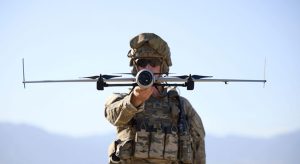
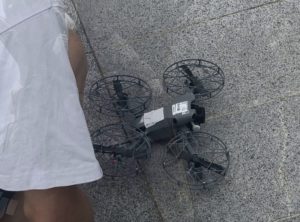





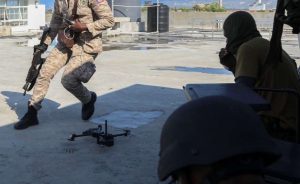
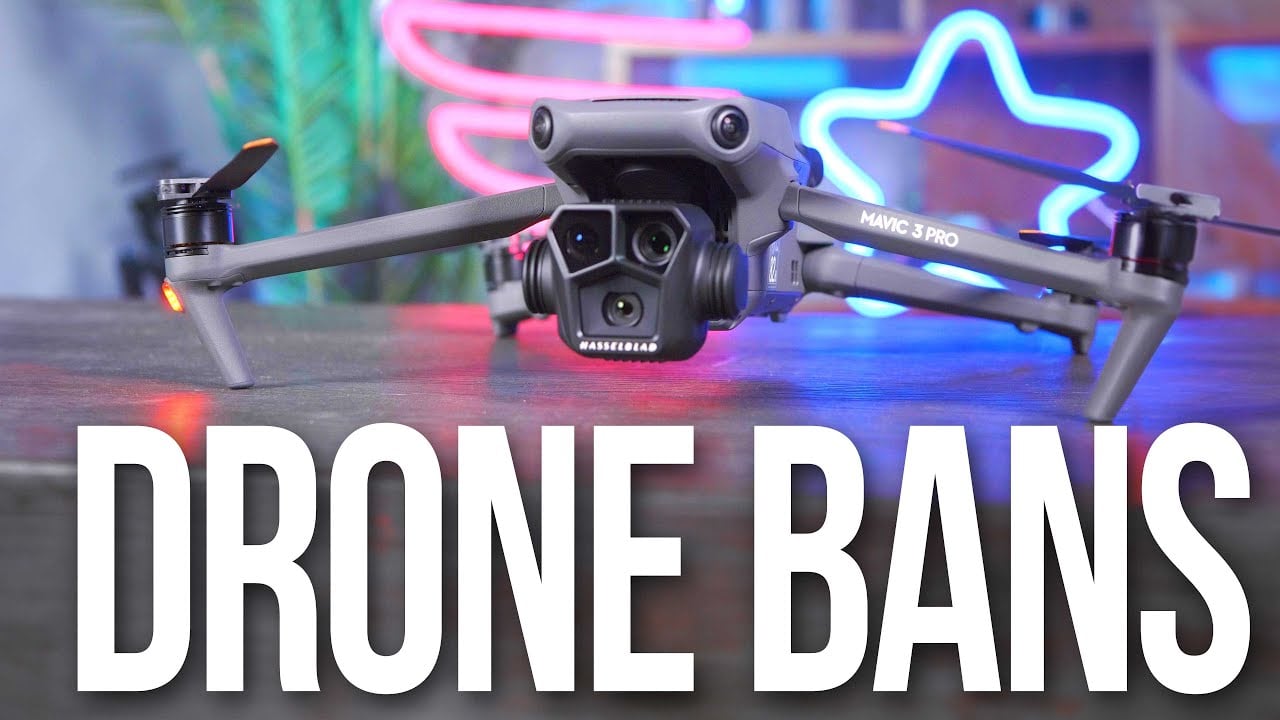


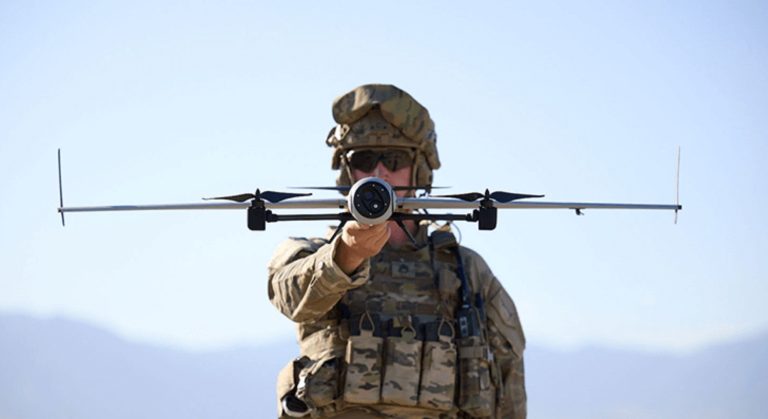
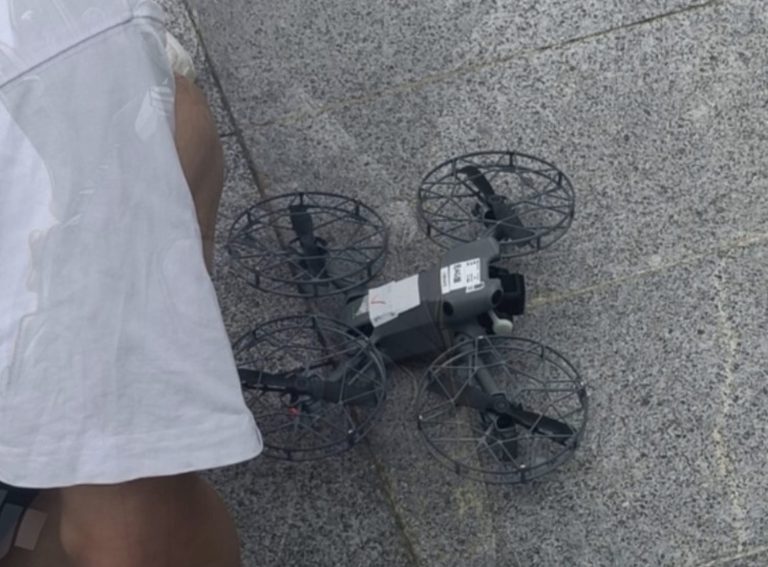

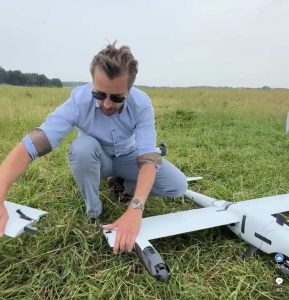
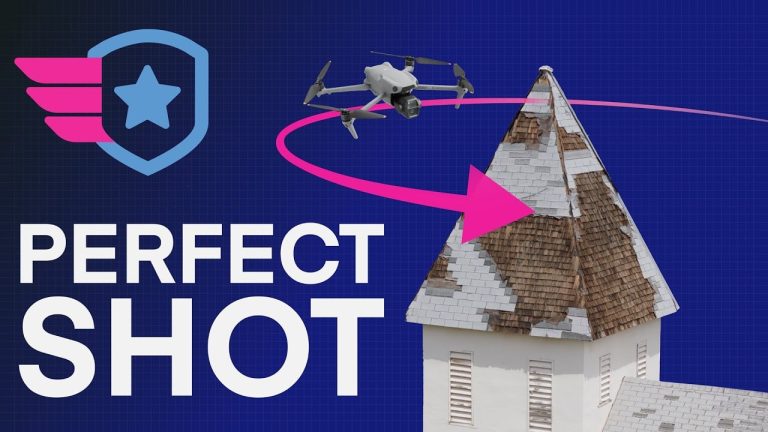
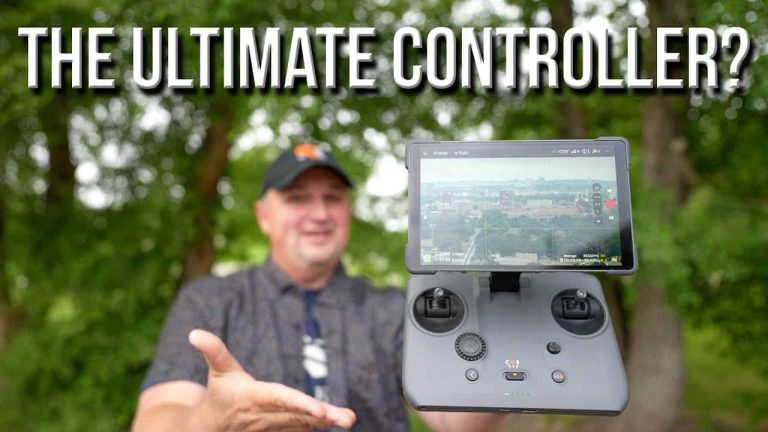
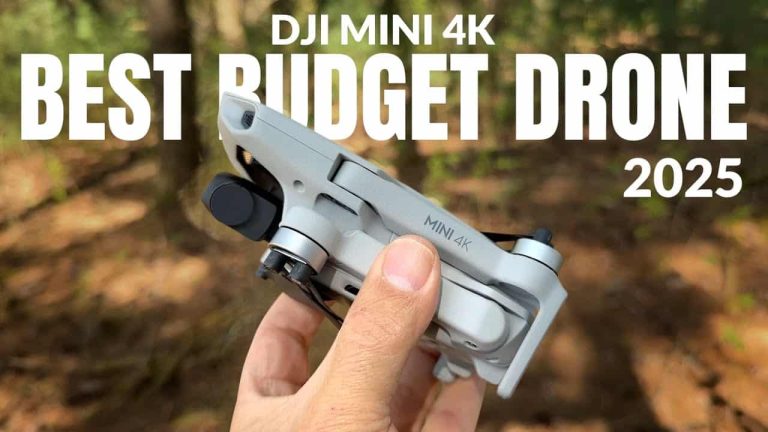


+ There are no comments
Add yours